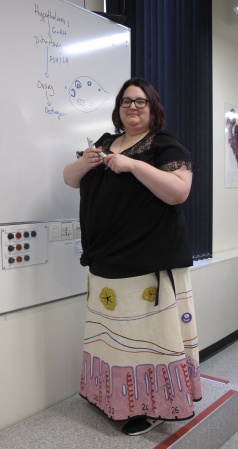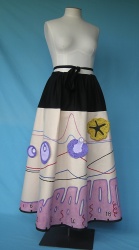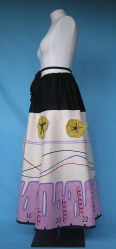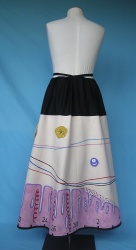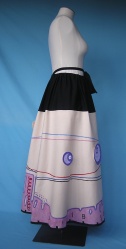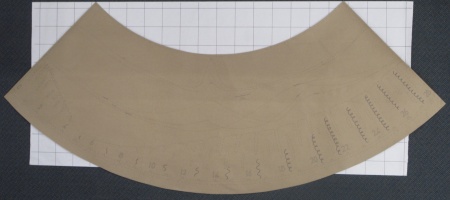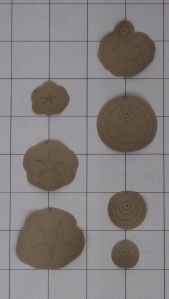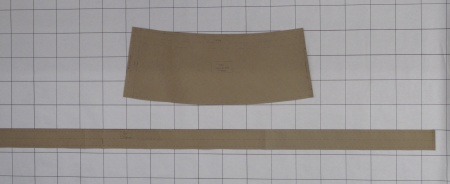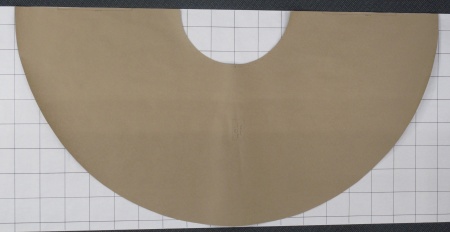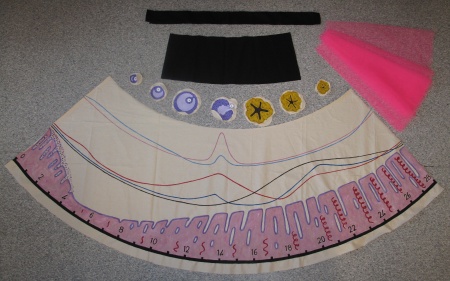Menstrual Cycle Skirt
A skirt to demonstrate to first year health science students the hormones (luteinising hormone, follicle stimulating hormone, oestrogens, inhibin and progesterone) and endometrial/ovarian tissue changes that occur through the human menstrual cycle. The developing follicles and corpus luteum stages are separate pieces which attach using Velcro. The skirt is sized to be worn by most people and is fitted with a drawstring waist.
Click to enlarge images:
Production Information
Materials: heavy calico or canvas, tulle (aka netting), black rayon fabric, fabric paints, sew-in Velcro.
Click to enlarge images (The background grid in the pattern photos is 100mm x 100mm):
- Main skirt (cut one from canvas)
- Follicles/corpora lutea (cut pairs from canvas):
- Yoke and belt (cut one each from black rayon fabric)
- Petticoat (cut one on fold from tulle)
The canvas pieces were cut out and painted with heat-set fabric paints
Velcro was sewn to the skirt and back surface of the follicles/corpora lutea. The two parts of each follicle/corpus luteum were sewn with right sides together (leaving a small opening), turned and finished. The black rayon pieces were cut and sewn into a yoke with drawstring belt. The tulle was cut out and all three parts (main skirt, tulle, yoke) were sewn together.
Creators: Drs Jane Girling, Rebecca Bird and Michael Pankhurst (initial idea and academic support), Fieke Neuman (patterns, sewing). All from Department of Anatomy, University of Otago.
Keywords: Teaching, Anatomy, Medicine, Uterus, Ovary, Hormones, Menstrual cycle, Science, Biology
This work is licensed under a Creative Commons Attribution-NonCommercial-ShareAlike 4.0 International License

